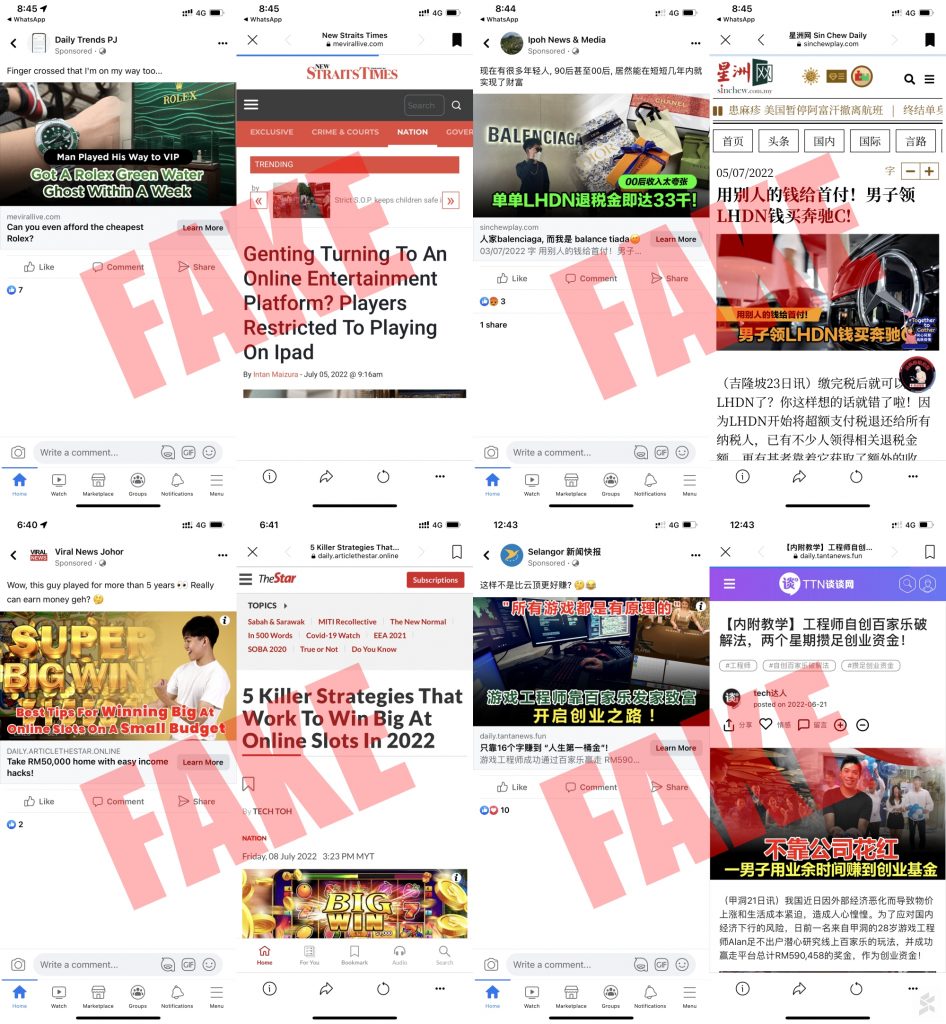In response to our recent post about Meta allowing scam ads on its platform, Communications and Digital Minister Fahmi Fadzil calls on the Malaysian Communications and Multimedia Commission (MCMC) to take faster and tougher action. Recently, there are increased reports about fake Facebook pages running scam ads offering free books related to investment and financial management. These scam pages impersonate popular brands and titles such as Kinokuniya, Popular, MPH and Sin Chew Daily, and they direct users to a WhatsApp chat to continue the conversation.
These scam tactics on social media are getting out of hand. @MCMC_RASMI we must take faster, tougher action. https://t.co/1wFKeBzxOI
— Fahmi Fadzil 🇲🇾 (@fahmi_fadzil) December 20, 2022
Tackling online scams is among Fahmi’s top priorities after taking up the top job at the Ministry of Communications and Digital. During a recent town hall, he shared that his own mother was a scam victim and lost RM75,000 from her Tabung Haji account.
He called upon scam victims to make a report with the National Scam Response Centre hotline at 997. He said the report must be made within 24 hours so that Bank Negara Malaysia can take necessary action to stop the outflow of funds. Fahmi also said scams are a potential security risk as the funds can be channelled into the black economy which can be used to buy drugs or weapons.

Facebook which is among Malaysia’s most popular social media platforms has been notorious for allowing scam ads on its platform without basic checks. Despite breaching its own ad policies and boasting AI capabilities for moderation, scam ads impersonating popular brands and public figures have been approved almost instantly and hardly any action was taken when the ads were reported. As a result, these ads which Meta profits from, have caused financial losses to scam victims.
It’s high time for the Malaysian government to take Meta accountable for aiding and abetting scam activities on its platform. All major social media platforms must be required to have a local ad review/moderation team to approve ads that are targeted at Malaysians. On top of that, all social media platforms must be given a firm turnaround time to act on inappropriate content and scams reported by users. With social media platforms such as Facebook taking a lion’s share of digital ad revenue in Malaysia, they should make the necessary investments to ensure their ads are safe and compliant with local regulations.
Most of these scam ads can be weeded out quickly if they are vetted by a Malaysian team that understands the local context. Meta Malaysia has been informed about the specific scams but they have failed to take action in a timely manner. The fact remains that the longer the scam ads run, the more revenue Meta gets and more Malaysians will become victims. It is clear that Meta is prioritising profits over user safety.

Early this year, the Australian Competition and Consumer Commission (ACCC) sued Meta for allowing scam ads on its platform. It alleged that Meta has engaged in false, misleading or deceptive conduct by publishing scam advertisements featuring prominent Australian public figures. The ACCC said their conduct was in breach of the Australian Consumer Law (ACL) or the Australian Securities and Investments Commission Act (ASIC Act). It added that Meta aided and abetted or was knowingly concerned in false or misleading conduct and representations by the advertisers.
ACCC Chair Rod Sims said Meta is responsible for ads that it publishes on its platform and should have been doing more to detect and then remove false or misleading ads on Facebook, to prevent consumers from falling victim to ruthless scammers.
Related reading
- Facebook allows scam ads claiming to offer Teh Hong Piow’s book for free
- Kinokuniya Malaysia warns of fake Facebook pages scamming users with “free books”
- 5 things Fahmi Fadzil needs to fix as Digital Communications Minister
- Facebook pages have been impersonating an influential Malaysian doctor to scam people
- It’s time for Malaysia to penalise Facebook for allowing scam ads








